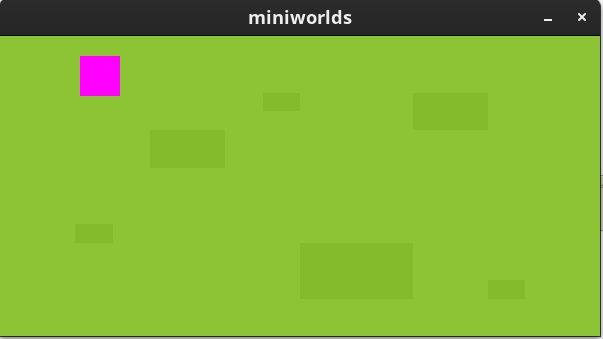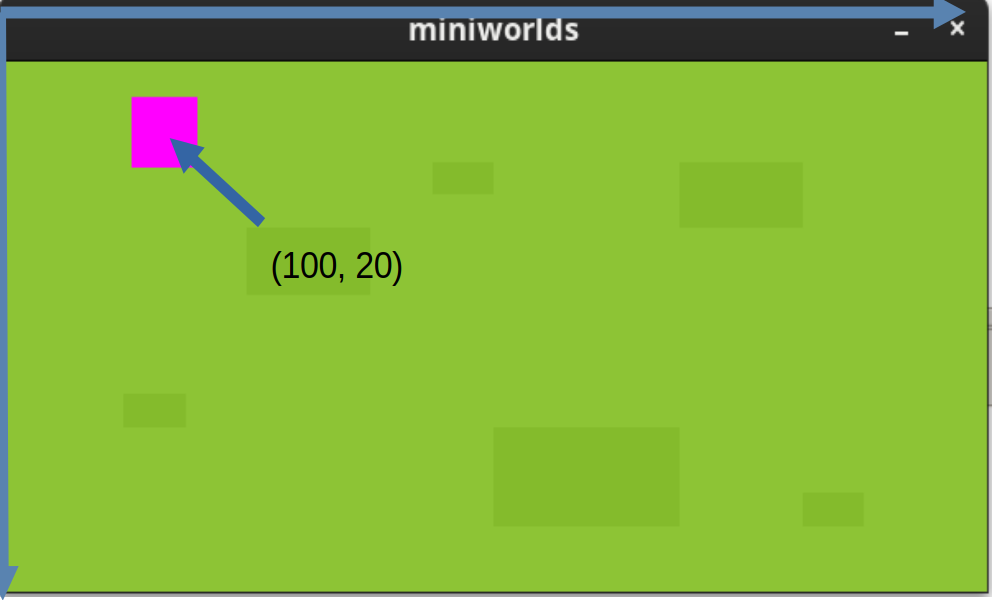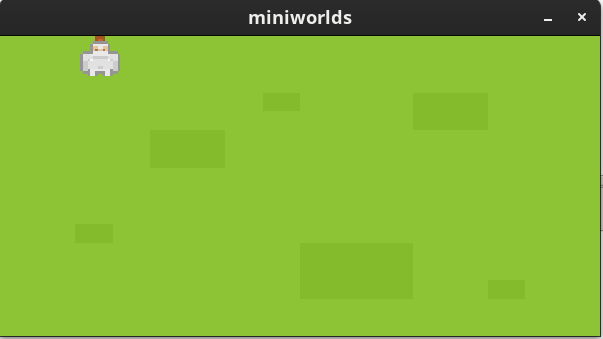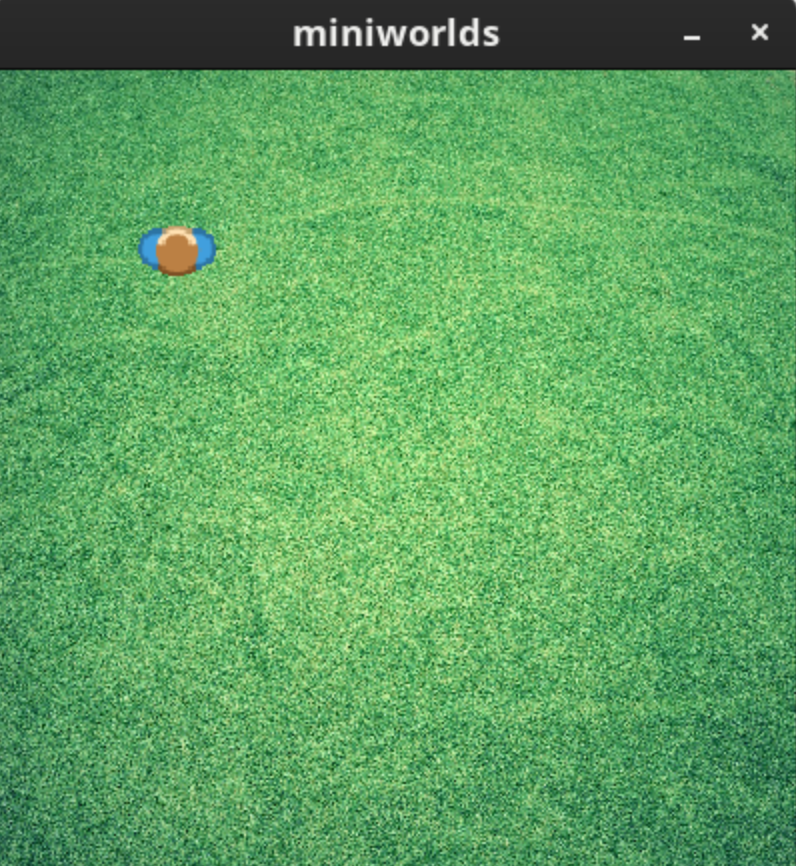Actors#
Actors: Building Blocks of Your World#
An actor is anything in your world that can move or be changed. It could be a character controlled by the player or an object like a wall or obstacle. In Miniworlds, every actor is an independent object that appears in the world and can interact with other objects.
Creating an Actor#
Let’s start by placing an actor in your world. We’ll first create a simple world with a background and place an actor in it:
import miniworlds
# Create a world with dimensions 600x300 pixels
world = miniworlds.World(600, 300)
# Add a background (for example, a grass image)
world.add_background("images/grass.png")
# Create an actor
actor = miniworlds.Actor((100, 40)) # Actor at position (100, 40)
# Start the world to display it
world.run()

Output#
Explanation:#
We create an actor at position x=100, y=40. It is shown as a purple rectangle because it doesn’t have a costume yet.
Note that the origin of the coordinate system is at the top left.

Example: Coordinate system#
The position (100, 20) refers to the center point of the actor.
Costumes#
Every actor in Miniworlds can wear a costume, which defines its visual appearance. A costume is simply an image assigned to the actor to give it a visual identity.
Step 1: Prepare Images#
Before you can add a costume to an actor, copy the image files into your project’s images folder.
A typical project structure might look like this:
project
│ my_world.py # file with your Python code
└───images
│ grass.png
│ knight.png
│ player.png
Step 2: Add a Costume#
Once your images are ready, you can assign a costume to your actor using the add_costume() method:
from miniworlds import World, Actor
# Create a world with dimensions 600x300
world = World(600, 300)
# Add a background
world.add_background("images/grass.png")
# Create an actor at position (100, 20) and add a costume
actor2 = Actor((100, 20))
actor2.add_costume("images/knight.png") # "knight.png" as costume
# Start the world so the actors are visible
world.run()
Output:#

Output#
Explanation:#
After running the program, you’ll see an actor with the costume knight.png.
Bonus: Experiment with Your Own Costumes!#
Now that you know how to assign costumes, you can get creative:
Create your own images and save them in the
imagesfolder.Change the position and appearance of your actors.
For example, try creating an actor in a new position and give it a different image:
# Add a third actor and give it its own costume
actor3 = Actor((200, 150))
actor3.add_costume("images/cow.png") # Costume: "cow.png"
# Start the world again
world.run()
Summary:#
Actors get a costume using the
add_costume()method.The images must be saved in the correct folder to be found.
You can place and customize as many actors as you like with different costumes.
:::{admonition} FAQ
FAQ: Common Issues and Solutions#
My actor is facing the wrong direction. What can I do?#
If your actor is pointing in the wrong direction, here are two simple fixes:
Problem Description#
Problem#
from miniworlds import World, Actor
world = World()
world.add_background("images/grass.jpg")
player = Actor((90,90))
player.add_costume("images/player_orientation_top.png")
player.direction = "right"
world.run()

The image is oriented upwards. However, Miniworlds expects images to face to the right.#

So in this example, the actor appears to be facing the wrong direction.#
Solution#
Rotate the image: You can rotate the image using an image editor so that it faces the desired direction (usually rightwards).
Adjust orientation in code: Alternatively, you can rotate the costume directly in Miniworlds using the
orientationattribute:my_actor.costume.orientation = 90 # Rotates the costume by 90 degrees
You can also use other values like -90 or 180 to get the correct orientation, depending on how your image is designed.
The example above can be corrected like this:
from miniworlds import World, Actor
world = World()
world.add_background("images/grass.jpg")
player = Actor((90,90))
player.add_costume("images/player_orientation_top.png")
player.direction = "right"
player.costume.orientation = -90
world.run()
Explanation:
The image was rotated -90° to the left relative to the expected position. This correction makes the actor face the right direction in-game.
How do I prevent the costume from rotating with the actor?#
If you want the costume to stay fixed and not rotate with the actor’s movement or orientation,
you can disable costume rotation by setting is_rotatable to False:
my_actor.costume.is_rotatable = False # Keeps costume fixed in one direction
:::